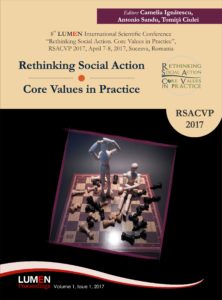
Analysis of a Major Inequity in the Budgetary Wage System: Gerontocracy. Arguments and Solutions
n this article, we demonstrate that the influence of seniority on employees’ gross salaries in the budgetary sector is exaggerated, leading to significant effects which allow us to legitimately discuss the gerontocracy it reveals, in other words, the wage discrimination based on age criteria. The wage system currently applied for the budgetary employees’ wages is characterized by a hierarchical classification based on a dominant criterion, namely the age, which is equivalent to the “seniority in work” indicator (transposed into the six salary grades). Seniority is an exclusive criterion for defining payment hierarchy in the case of identical categories of staff. For each occupational category, the basic salary is hierarchically classified based on seniority and according to the 6 grades; also, based on it all categories of bonuses are established. Thus, the differences in the basic salary are multiplied by each of the applicable bonuses. The maximum level of polarization based on seniority is the when bonuses for working conditions depend on the basic salary which is hierarchically classified according to the accumulated length of service. The result is that different “compensations” for identical working conditions in identical occupational categories are offered. Different compensation for members of the same professional category working under exactly the same conditions flagrantly violates the principles of equity and the provisions of Art. 3, section c) of Law no. 284/2010. We consider that the best solution would be that bonuses should be related to the basic salary, which would correspond to the 0 grade for each of the professional categories. Considering the set of effects caused by wage discrimination based on age and taking into account the reason why they were introduced, we used the term “gerontocracy”. Gerontocracy could be one of the risks inherent to democratic societies and created by modernity, which has not been sufficiently studied so far and which is enhanced by the contribution of age-based knowledge (recognition) in a society where science occupies an increasingly important place.
More...